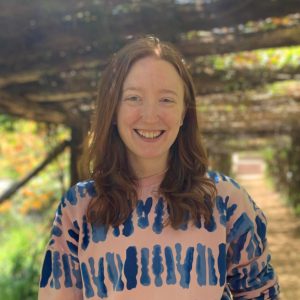
- This event has passed.
PhD Dissertation Defense: Sarah Brown (E3P – Arnosti)
October 4, 2022 @ 10:00 am - 11:00 am
 Enzymatic capabilities and substrate uptake mechanisms of diverse bacterial communities in the Atlantic, Indian, and Southern Oceans
Enzymatic capabilities and substrate uptake mechanisms of diverse bacterial communities in the Atlantic, Indian, and Southern Oceans
Abstract: Microbial communities play essential roles in marine carbon cycling – their activities ultimately determine the fate of carbon assimilated by phytoplankton in ocean surface waters. Extracellular enzymes, which allow bacteria to break large components of organic matter into pieces small enough to enter the cell, carry out the first step in organic matter degradation; the enzymatic capability of a community thus determines its ability to degrade organic matter. However, few studies have utilized techniques that allow for concurrent examinations of the rate at which organic matter is hydrolyzed, the substrate uptake mechanism used, and the composition of the bacterial community. This dissertation investigates the abundance and identity of bacteria with different substrate uptake mechanisms across spatial and temporal scales while simultaneously examining their role in the degradation of organic matter. In the Atlantic Ocean, selfish bacteria, which possess a substrate uptake mechanism that allows for the uptake of large pieces of polysaccharides with little or no loss of hydrolysis products, were found to be abundant throughout the water column, including at depths of 5,500 m, in the first investigation of this method of substrate uptake in subsurface waters. The selfish uptake mechanism was also phylogenetically widespread, with members of the Gammaproteobacteria, Bacteroidetes, Verrucomicrobia, and Planctomycetes identified as selfish. Investigations of external hydrolysis with depth in the Atlantic, Indian, and Southern Oceans revealed that the relationship between enzymatic activities and bacterial community composition varied across spatial scales and with substrate complexity, indicating that certain substrates may be more widely available to bacteria, while other require extensive specialization to access. Finally, inputs of high-molecular weight organic matter to diverse microbial communities resulted in a shift in the activities of selfish and sharing bacteria; the abundance of bacteria with these substrate uptake mechanisms was likely the result of interactions between community composition, environmental conditions, and the complexity and abundance of individual substrates. These factors provide improved understanding of the flow of carbon through the microbial loop and its fate in the ocean.
Link to join Webinar: https://unc.zoom.us/j/95970230666
